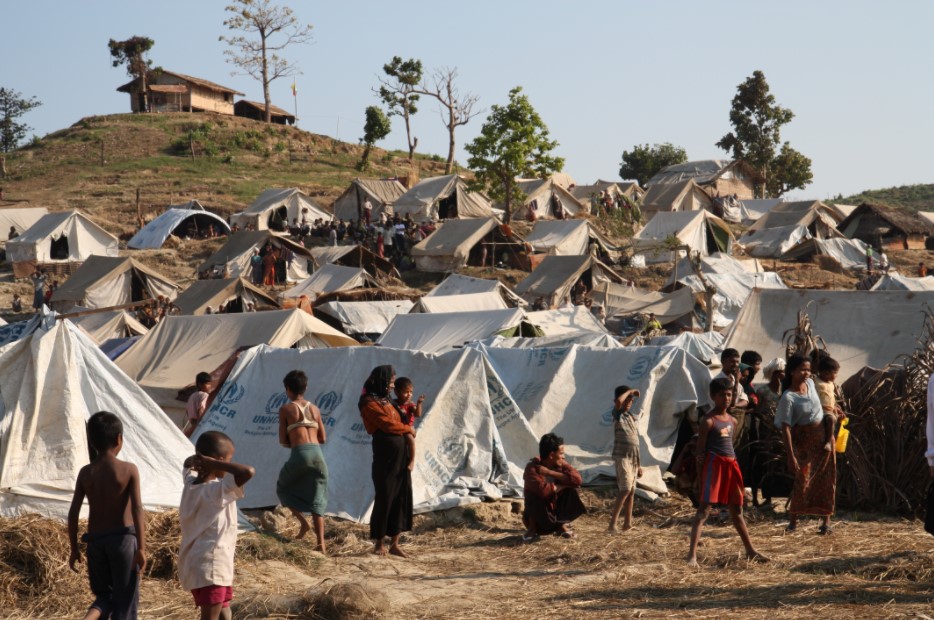Aung San Suu Kyi’s Complicity in the Persecution of Rohingya Muslims in Myanmar
In 1991, Aung San Suu Kyi was awarded the Nobel Peace Prize “for her non-violent struggle for democracy and human rights.” She was given the award for her involvement in the 1988 pro-democracy uprisings in Myanmar, in which she helped found the National League for Democracy (NLD) party. In the wave of uprisings, she led her supporters and encouraged non-violent protests.
Today, she is state counselor of Myanmar, where the ethnic cleansing of Rohingya Muslims is occurring. The U.N. estimates at least 1,000 Rohingya have been killed and over 600,000 refugees have fled to Bangladesh. Suu Kyi has failed to do anything to stop these human rights violations, let alone speak out against them. Why would a woman who has received the highest possible award for defending human rights so blatantly ignore violations in her own country?
Politics
Politics has played a significant role in Aung San Suu Kyi’s failure to speak out against the blatant human rights violations occurring under her watch. She is part of the first democratically elected government and under immense pressure to do what is popular with most Burmese citizens. A significant portion of Myanmar’s population would be infuriated if Suu Kyi chose to defend the refugees. Since the political liberalization of Myanmar in 2011, Buddhist nationalism has been on the rise, coinciding with an increase of anti-Muslim hate speech.
The Military Wields Control
Another reason why Aung San Suu Kyi is ignoring the blatant human rights violations in Myanmar is that she does not have stable control of the country. In 2015, Suu Kyi won the country’s first democratic elections since military rule began in 1962. The gains were fragile, as her victory was accompanied by a power-sharing agreement with the military. Considering the military’s autonomy and the fledging state of the democracy, it is difficult and risky for Suu Kyi to speak out.
The Myanmar military is opposed to the Rohingya population and has labeled them as a threat to national security. They justify this designation by pointing to minor Rohingya insurgencies and the killings of police. On Aug. 25, the Myanmar government reported that Rohingya killed 20 policemen. In retaliation, the government began clearance operations, which the U.N. and U.S. have designated ethnic cleansing. Human Rights Watch reports that the military has been murdering Rohingya, raping women, and burning down villages.
Suu Kyi claims that based on these actions the Rohingya are a threat to the government and must therefore be stopped. She fails, however, to recognize discrimination by the Burmese government against the Rohingya population in the years leading up to this event.
A Small Light at the End of the Tunnel
On Nov. 28, the governments of Myanmar and Bangladesh announced that they had reached an agreement by which Rohingya refugees could return home. This marks the first step taken by the Myanmar government towards any kind of solution, which is promising, if genuine. The agreement, however, contains provisions placing refugees into temporary camps upon their return, since many of their houses have been burned down. This causes great concern amongst international human rights activists.
The Myanmar government also requires that all returning refugees have ID cards. This is an issue for two reasons. First, many Rohingya do not have ID cards, so they would not be allowed to return. Second, there are worries that the Myanmar government might deem the IDs invalid, seize them, and refuse to give refugees new identification. This same issue with ID cards came up in 1989, when the Rohingya were stripped of citizenship rights. There are also no provisions in the agreement to grant returning refugees citizenship rights, consequently allowing continued discrimination against them.
In short, the situation for the Rohingya seems to be continually deteriorating. While there may be some signs that the worst has passed, many challenges, threats, and obstacles stand in the way of Rohingya Muslims’ return and reintegration into Myanmar. Despite having won the Nobel Peace Prize for fighting for human rights, Aung San Suu Kyi has inspired little faith in the international community that she will ensure the safety of Rohingya upon their return.

